Graham Reid | | 3 min read
Francoise Hardy: Les temps de l'amour

Sometimes music just comes into your life and you can never remember exactly how or why it arrived.
So it is with the debut album by French singer Francoise Hardy which came out in her motherland in late '62, a copy of which came into my possession somehow shortly thereafter.
I seem to recall it being around at the same time as I was pinning up Beatles posters and images of Natalie Wood from West Side Story on my bedroom wall. I guess I must have been 13.
Perhaps my older sister had somehow got a copy and passed it on when she graduated from featherlight French pop into the more mature sophistication of Barbra Streisand. There was a British version released in '64 which I presume was the one we had, no reason why we might have got the original French pressing.
I don't think I got it by accident through the World Record Club (from where I got a Ravi Shankar album which changed my life, before Norwegian Wood).
However or whenever it happened the mysteriously exotic face of Hardy was right there, looking at me with confident, mature sexiness between sweeps of hair and against the backdrop of an umbrella.
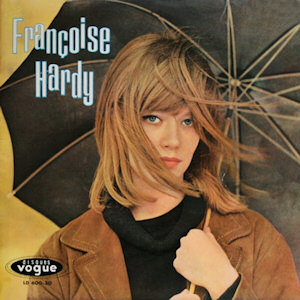 She looked like she knew a
thing or too and she was 18, so that put her four years ahead of me
and I fancy a lifetime of inexplicably sophisticated Gallic
experiences. I don't know if she smoked, but if she did I bet it was
with casual style.
She looked like she knew a
thing or too and she was 18, so that put her four years ahead of me
and I fancy a lifetime of inexplicably sophisticated Gallic
experiences. I don't know if she smoked, but if she did I bet it was
with casual style.
For years I was confused that she should be known as one of the “ye-ye” singers which I presumed had something to do with the Beatles.
But that was what the French called their pop singers apparently. And anyway one listen to the album – then and now – places it firmly in the pre-Beatles era.
In her splendidly monotone style which barely hints at any emotional depth but eschews anything upbeat or chipper, Hardy is firmly in that period between the decline of the Shadows and the rise of the Beatles.
The pop songs are elementally simple, the guitar solos like Hank Marvin on mogadon and reduced to a single string, and Hardy's voice these days comes off like a marginally more pop version of Nico's monotone.
I think at the time maybe Marlene Dietrich might have been her role model, but a Dietrich of her era which seemed to involve sitting outside cafes in thick scarves while watching young men on scooters making their way to the Sorbonne for a day of indolence and arcane shoulder-shrugging philosophy.
Amazing what you can conjure up when you have very few reference points.
Interestingly Hardy wrote most of these lyrics (which are so well enunciated and clear they can be understood by those with just a few years of schoolroom French) and the musical reference points – aside from the Shadows – could easily be the melancholy end of American surf instrumentals, Elvis and Cliff Richard ballads as much as the local chanson.
She was less Brenda Lee, Helen Shapiro and Sylvie Vartan than a diluted folk singer of modest talent placed in a pop-lite setting.
Which might suggest there's not a lot to recommended it.
Au contraire – or, as they say in France, on the contrary – because this album (actually her first three EPs wrapped up in the new LP format) has a breezy, easy innocence.
Or so it seems.
Because it just came out under her own name (as did the follow-up with her equally breeze-blown photo on the cover) the album is often referred to by the hit single: Tous les Garcons et les Fille/All the Young Boys and Girls.
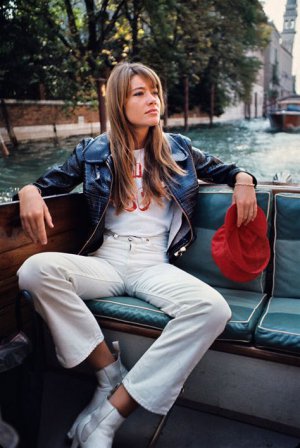 In that delightful song
which opens the 12-song album she sings about lovers walking hand in
hand, but she is the outsider. Like an abandoned Shirelle or
Shangri-La she watches the lovers walk by (like Carlos-Jobim watched
that girl from Ipanema) and ponders her solitary unhappiness.
In that delightful song
which opens the 12-song album she sings about lovers walking hand in
hand, but she is the outsider. Like an abandoned Shirelle or
Shangri-La she watches the lovers walk by (like Carlos-Jobim watched
that girl from Ipanema) and ponders her solitary unhappiness.
But even as a stupid boy I knew only really attractive girls sang about not having a boyfriend. That was just a thing . . . but when she did it?
In a way it seemed so . . . French?
The philosophical outsider, the ennui, the existentialism and . . . the whole je ne sais quoi of it all.
The song doesn't even end properly but just falters to a halt.
This is a theme picked up elsewhere, notably on the standout Le Temps d'Amour/The Time of Love (one-string Hank again), a song which appeared more recently in Moonrise Kingdom and captured that slightly out-of-kilter love between young kids who were outsiders. It is a much more moody piece musically.
So – despite more upbeat melodies and arrangements as on On Se Plait/If It's So and Il est parti un jour/One Day He Just Left – there is a strange tiredness in Hardy's pop songs.
And even as a teenager graduating from Summer Holiday to Motown and the Beatles this was a feeling which was palpable.
I didn't fall in love with Francoise Hardy on the merit of her looks as I am sure many did.
But I did play this album – now reissued on remastered CD – repeatedly.
Two years later I got a D in French for School Certificate.
C'est the way le cookie cumblez, peut-etre, non?
.
You can hear this album at Spotify here.
.
By the way; Francoise Hardy died last year at age 80s and had done a whole lot of other interesting stuff after this album. Too much to reckon with.

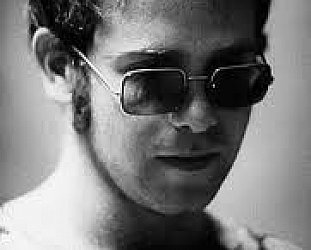
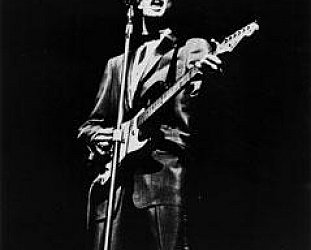
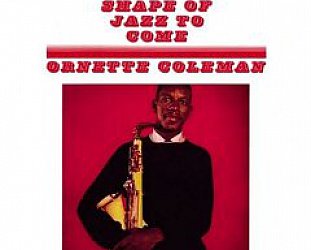

David Trubridge - Dec 8, 2015
Oh I remember it all so well! Thank you for tweaking the memory cells.
Savepost a comment